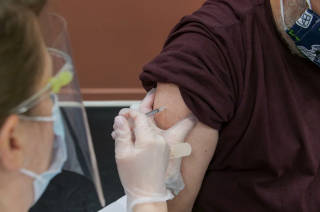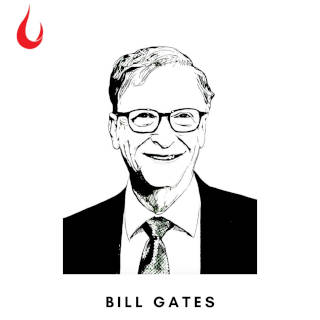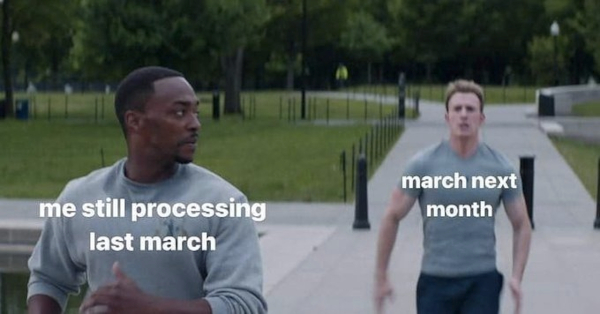[By Kelly Bailey from Kent, USA, CC BY 2.0, via Wikimedia Commons]
Good morning,
One of the more compelling books we are revisiting right now is Never Split the Difference by Chris Voss, an expert on negotiations. Voss is a former hostage negotiator with the FBI, America’s premier intelligence arm. This book packs much wisdom on every page and he doesn’t shy away from calling a spade a spade.
“The win-win mindset pushed by so many negotiation experts is usually ineffective and often disastrous. At best, it satisfies neither side. And if you employ it with a counterpart who has a win-lose approach, you’re setting yourself up to be swindled....you have to get rid of that naivete. Because compromise—splitting the difference—can lead to terrible outcomes.
“To make my point on compromise, let me paint you an example: A woman wants her husband to wear black shoes with his suit. But her husband doesn’t want to; he prefers brown shoes. So what do they do? They compromise, they meet halfway. And, you guessed it, he wears one black and one brown shoe. Is this the best outcome? No! In fact, that’s the worst possible outcome. Either of the two other outcomes—black or brown—would be better than the compromise. Next time you want to compromise, remind yourself of those mismatched shoes. So why are we so infatuated with the notion of compromise if it often leads to poor results? The real problem with compromise is that it has come to be known as this great concept, in relationships and politics and everything else. Compromise, we are told quite simply, is a sacred moral good…
“I’m here to call bullshit on compromise right now. We don’t compromise because it’s right; we compromise because it is easy and because it saves face. We compromise in order to say that at least we got half the pie. Distilled to its essence, we compromise to be safe. Most people in a negotiation are driven by fear or by the desire to avoid pain. Too few are driven by their actual goals. So don’t settle and—here’s a simple rule—never split the difference. Creative solutions are almost always preceded by some degree of risk, annoyance, confusion, and conflict. Accommodation and compromise produce none of that. You’ve got to embrace the hard stuff. That’s where the great deals are. And that’s what great negotiators do.”
Have a good day!
In this issue
- The race from vaccines to vaccinate
- Bill Gates on reading and learning
- The march of 2021
From the race to vaccines to the race to vaccinate
The world’s portfolio of approved vaccines has been expanding. Now, the key metric is how fast different countries are vaccinating people to achieve herd immunity, and beat the pandemic.

The math behind herd immunity shows why it’s not an easy task. Take the US as an example. In Stat, Iain MacLeod, co-founder and CEO of Aldatu Biosciences, points out that distance the country has to cover to reach herd immunity.
He writes: “Say the Moderna and Pfizer vaccines now being given across the country achieve 90% effectiveness. Vaccinating 70% of US residents puts us at 63% immunity. So, we’ll need to vaccinate a full 80% of the population to reach the herd immunity threshold.
“Additional vaccines are starting to be approved. Some of them have lower efficacy. For instance, the AstraZeneca vaccine has about 70% efficacy, and Johnson & Johnson has reported that its one-dose vaccine has 66% efficacy. Their real-world performance could be lower still. If these vaccines become part of the mix in the US, actual protection will be lower than the estimated 90% we’d get from just the Moderna and Pfizer vaccines.”
What about India? The sheer size of the population makes the logistics of vaccination challenging. Data suggests the Oxford vaccine is not as effective as Pfizer’s or Moderna’s. We don’t know the efficacy of Bharat Biotech’s vaccine yet. Following MacLeod’s logic, it will be even tougher for India to achieve herd immunity through vaccines.
However, there is another view. That a large number of Indians have already developed antibodies through exposure. For example, responding to sero survey results from Tamil Nadu showing the state has over 30% sero prevalence, Dr. Jayaprakash Muliyil, chairman of Scientific Advisory Commission and National Institute of Epidemiology, pointed out that sero surveys tend to be underestimates. The Times of India quotes him: “We are seeing a steady fall in cases from September. The epidemic is over. And it happened even before the vaccines came in. We should not wait for the last case to call it the end, because that may not happen anytime soon.” For the same reason, Thyrocare founder A Velumani earlier predicted that “vaccines will miss the bus” in India, in the sense that the country would have achieved herd immunity even before most people get vaccinated.
Still, it’s not a time to breathe easy. In Mumbai for example, the number of infections have gone up after the suburban trains started operating. Natural herd immunity will need a booster from vaccines. That’s a reason why there has been growing demand to open vaccination for the private sector as well.
Dig deeper
- Do the math: Vaccines alone won't get us out of this pandemic - STAT
- Herd immunity achieved in Tamil Nadu at last, say experts - Times of India
- Plausible reason for infections coming down is people acquiring immunity: Dr. Jayaprakash Muliyil - CNBC
Bill Gates on reading and learning
We sat up when we noticed in an interview with The New York Times that Bill Gates is reading Infinite Jest by David Foster Wallace. This book is one that many of us had gotten to love over time and had many debates around. Because this is not the kind of work you fall in love with right away. The length is intimidating, it takes time to get used to the narrative, and the theme in this work of fiction is challenging. But the return on time invested in it is worth it because it underlines our addiction to entertainment.

“I think books are one of the best ways to learn about the world, so I love reading things that teach me something new.”
“Infinite Jest. I’m on a mission to read everything David Foster Wallace wrote, and I’m slowly working my way through everything else before I get to that one. I’ve also got a copy of The Three-Body Problem, by Liu Cixin, which I’ve been meaning to read for a while,” Gates told NYT. The rest of the conversation had our interest because it offered much perspective on how Gates reads, learns and thinks.
In response to a question on what subjects does he wish there was more literature on, Gates said, “I’m surprised more books haven’t been written about how the insights we’re gaining from big data could be used for good. I read Everybody Lies, by Seth Stephens-Davidowitz, last summer, which is all about what internet data—and especially search engines—reveal about human behaviour. (Did you know that people who have pancreatic cancer often Google both “back pain” and “yellowing skin” before being diagnosed?) It was super interesting, but he didn’t get into what we could do with these learnings. I’d love to read a thoughtful book about how this information could make life better.”
Dig deeper
The march of 2021

(Via WhatsApp)
Tell us what you think and find noteworthy.
And if you missed previous editions of this newsletter, they’re all archived here.
Bookmark Founding Fuel’s special section on Thriving in Volatile Times. All our stories on how individuals and businesses are responding to the pandemic until now are posted there.
Warm regards,
Team Founding Fuel
(Note: Founding Fuel may earn commissions for purchases made through the Amazon affiliate links in this article.)



